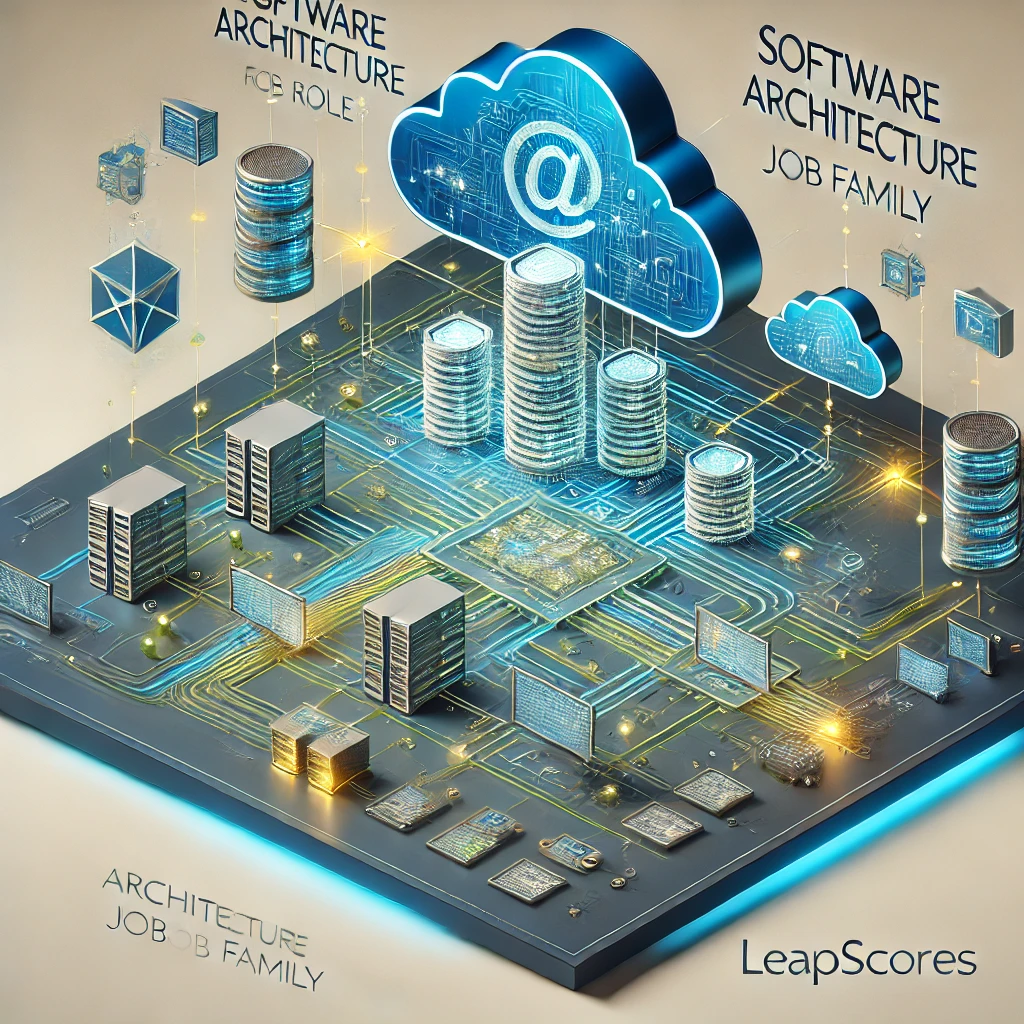Overview of the Software Architecture Job Family Roles
The Software Architecture Job Family provides a structured career path for professionals specializing in system architecture, cloud computing, and enterprise-level design. As technology advances, businesses require skilled architects to create scalable, secure, and high-performance systems.
Technical Architects bridge the gap between business needs and technical solutions, ensuring the design and implementation of resilient architectures that support business objectives. Career progression within this field involves mastering system integration, cloud technologies, and strategic technical leadership.
Key Roles and Career Progression
Roles within the Technical Architect domain follow a structured competency model, assessed using LEAP Scores to help employers make informed hiring and development decisions.
Entry-Level Roles
Technical Architecture Intern – Assists with architecture-related tasks, gaining foundational knowledge in system design and IT infrastructure.
Key Skills: Basic software architecture, networking fundamentals, diagramming tools (e.g., Lucidchart, Visio), version control (Git).
Junior Technical Architect – Supports small-scale architectural initiatives and collaborates with development teams.
Key Skills: High-level architecture documentation, security principles, cloud computing models (IaaS, PaaS, SaaS), DevOps concepts.
Early-Career Roles
Associate Technical Architect – Designs small-scale systems, contributing to larger architectural projects.
Key Skills: Service-oriented architecture (SOA), microservices, containerization (Docker, Kubernetes), trade-off analysis.
Technical Architect – Designs and manages medium-complexity systems, ensuring alignment with business requirements.
Key Skills: Scalability, security best practices (IAM, encryption), leading design sessions, Infrastructure as Code (Terraform).
Mid-Career Roles
Senior Technical Architect – Leads architectural initiatives and drives design decisions for complex systems.
Key Skills: Multi-tiered and distributed system architecture, cloud-native design (AWS, Azure, GCP), security mechanisms (zero-trust, WAFs), mentoring.
Platform Architect – Specializes in designing and optimizing core technology platforms.
Key Skills: High availability and disaster recovery, container orchestration (Kubernetes, OpenShift), monitoring and observability.
Advanced Roles
Lead Technical Architect – Oversees technical teams and defines architectural standards.
Key Skills: Multi-cloud and hybrid cloud solutions, executive collaboration, architectural reviews, and technical audits.
Enterprise Architect – Defines enterprise-wide architectural strategies and governance policies.
Key Skills: Global-scale systems, compliance, emerging technology adoption (AI, blockchain), risk management.
Expert Roles
Principal Technical Architect – Innovates architectural practices and influences technical strategy.
Key Skills: Enterprise-wide cloud migrations, advanced architecture patterns (event-driven, serverless), industry leadership.
Chief Technical Architect – Shapes the organization’s technical vision, driving long-term innovation.
Key Skills: Global architecture strategy, C-suite collaboration, emerging technology leadership (quantum computing, edge computing).
How LEAP Assessments Support Technical Architect Roles
LEAP Assessments provide a data-driven approach to evaluating competencies within the Technical Architect Job Family. Employers benefit from:
- Objective Hiring Decisions – LEAP Scores ensure skills-based hiring beyond traditional resumes.
- Competency-Based Development – Tracks career growth and skill acquisition.
- Workforce Optimization – Standardized benchmarks for resource planning and career progression.
Conclusion
The Technical Architect Job Family offers professionals a clear pathway for career progression, from foundational learning to enterprise-wide impact. With LEAP Assessments, hiring managers can confidently build and develop high-performing architecture teams through competency-based evaluations and strategic workforce planning.
For more information, contact LEAPScores@RewiredHQ.com.

